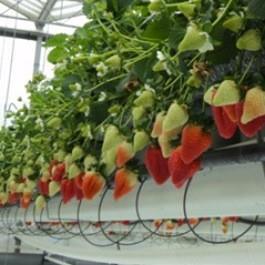
New research has shown millenials are unlikely to consider fruit picking as a job as labour shortages continue for British horticulture.
The Soil Association report suggests that they more interested in senior and technical roles however. The charity called on the industry to “start now” in getting the next generation into horticulture.
Figures from a recent British Summer Fruits survey reveal four out of five UK berry growers said they expected to grow less fruit in the future, and that 14 per cent already considering overseas opportunities.
The consensus is that the domestic work force won’t be able to fill the gap, although many believe more needs to be done to at least try.
Nick Marston, of British Summer Fruits told The Times that fruit picking was portrayed in a misleading way, as the government prepares to improve its image in job centres.
Marston said: “Farm work is always portrayed as very low paid and back-breaking but it is not the arduous work it was 15 to 20 years ago. The work is almost all done standing up because the strawberries are on tabletops. The pay, including productivity bonus, is substantially more than working in the hospitality industry.”
In response to the labour shortage, the Soil Assocation are calling on the government to form an industry wide action plan with a permanent committee to stand alongside Defra, as well as continuing commitments to the EU’s Fruit and Vegetable Aid scheme.
They also called on the horticulture sector to create clearer and more varied contracts and consider worker empowerment schemes, such part ownership of the business, to attract more candidates.
Honor Eldridge, Soil Association policy officer said last week that relying solely on domestic labour is “unrealistic” but new horticultural initiatives can help shift attitudes along side maintaining access to migrant labour post Brexit.
“The UK’s horticulture industry is heavily reliant on migrant workers and there’s a risk that a post-Brexit labour shortage could jeopardise our domestic fruit and vegetable supply. Younger generations hold the answer,” Eldridge said.
“A new vision of horticulture is needed to show how it delivers millennial values like autonomy, social responsibility and community engagement. By enhancing entry points and perceptions of the sector and continuously improving working conditions, we can show young people how exciting and rewarding a career in horticulture can be.
“Positive initiatives like the upcoming Fruit and Vegetable alliance, which the Soil Association is supporting, are needed to promote production and consumption of UK fruit and vegetables.
“However, this shift in attitudes won’t happen overnight and robotics are also unlikely to fill the migrant labour gap in the short term, so the government must commit to maintaining access to migrant labour post-Brexit.”



